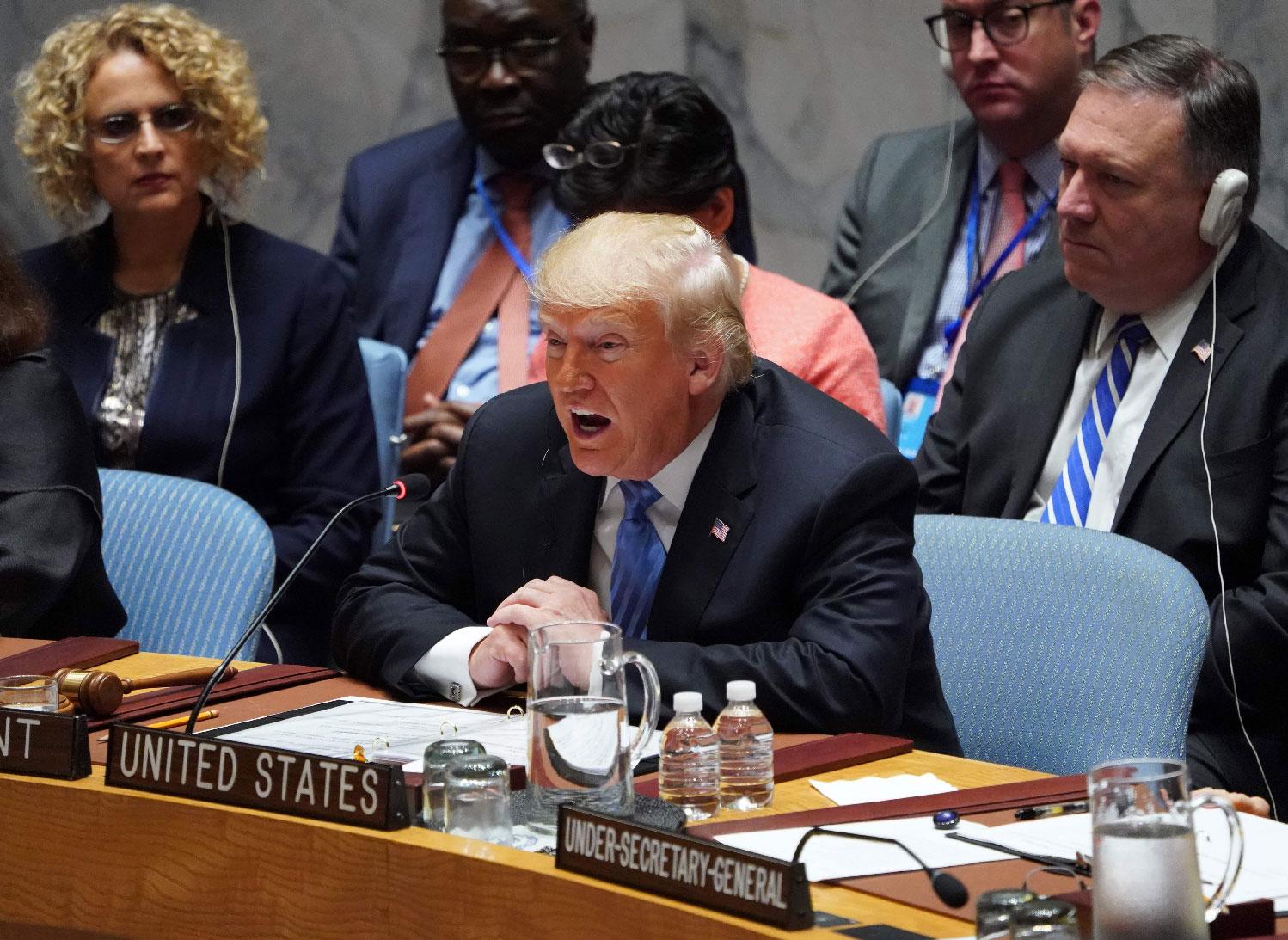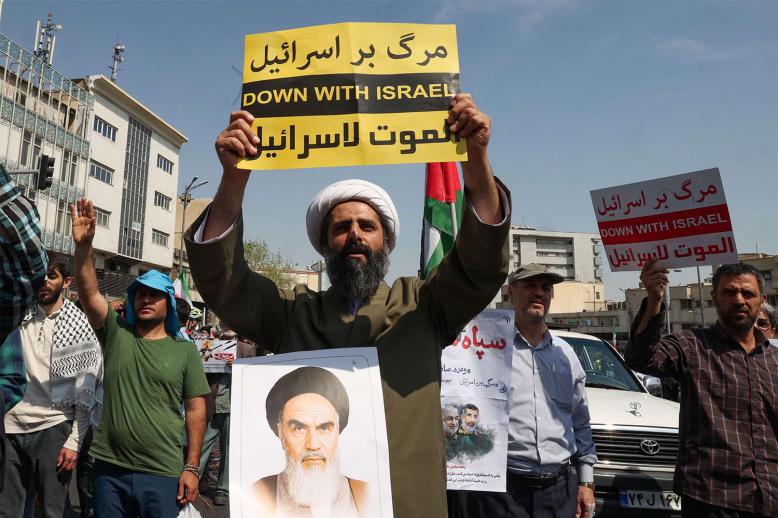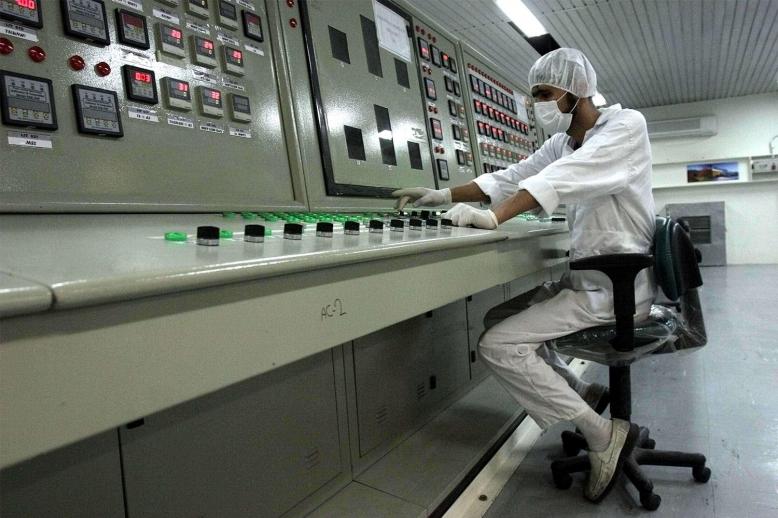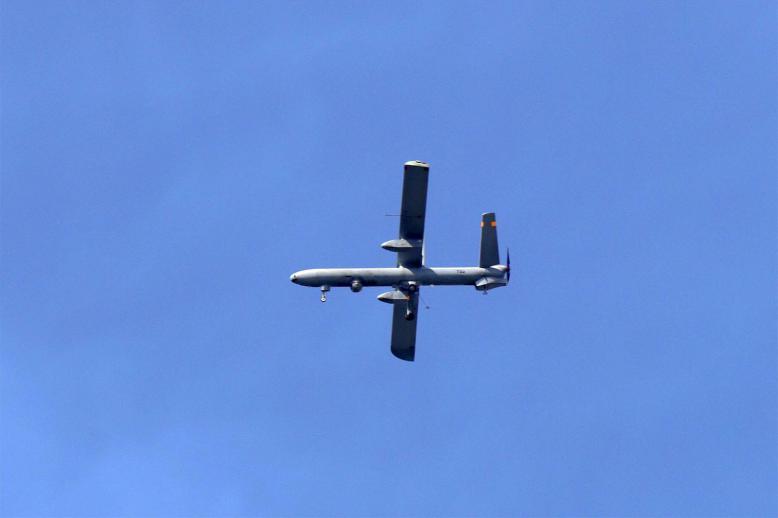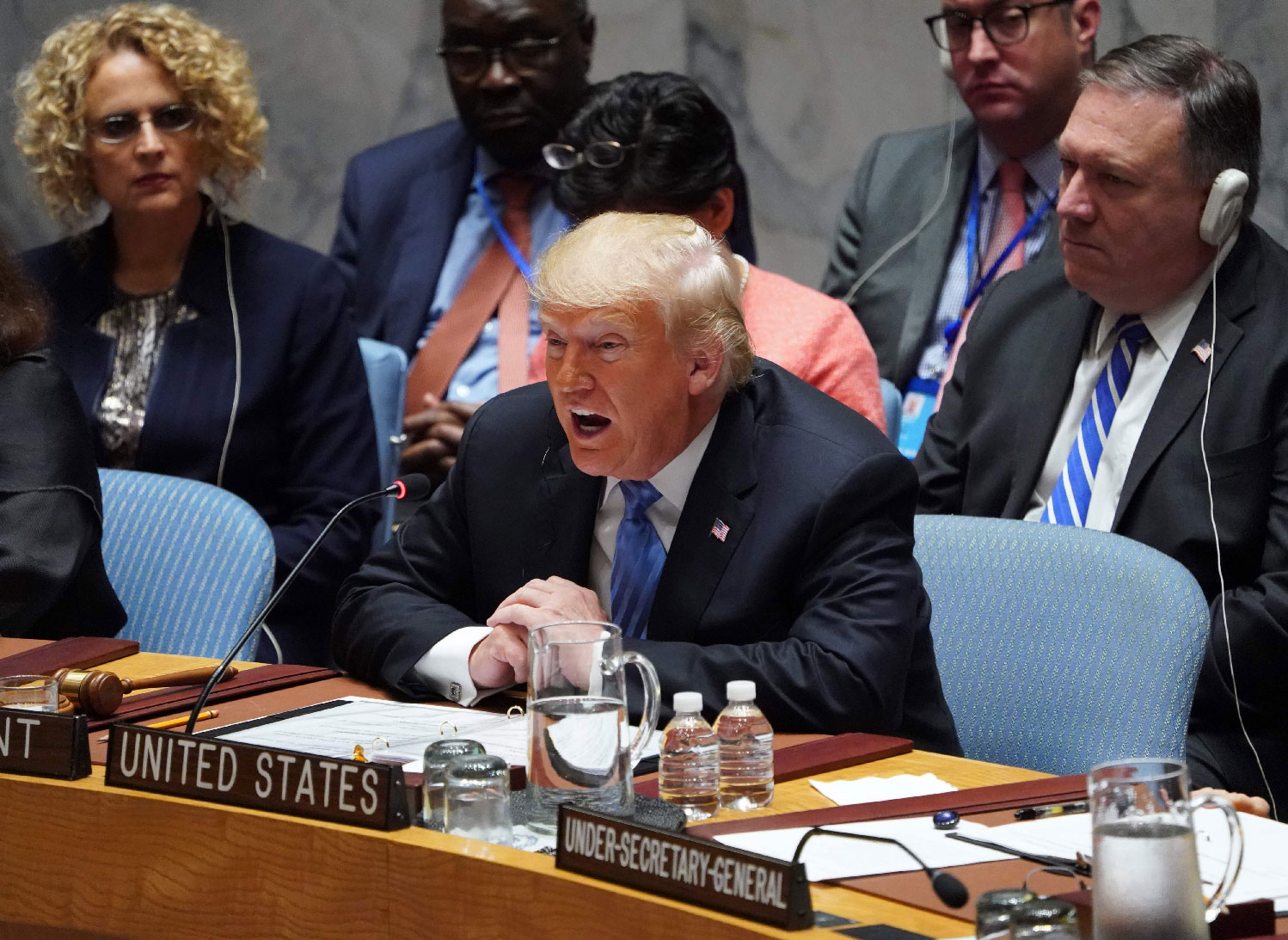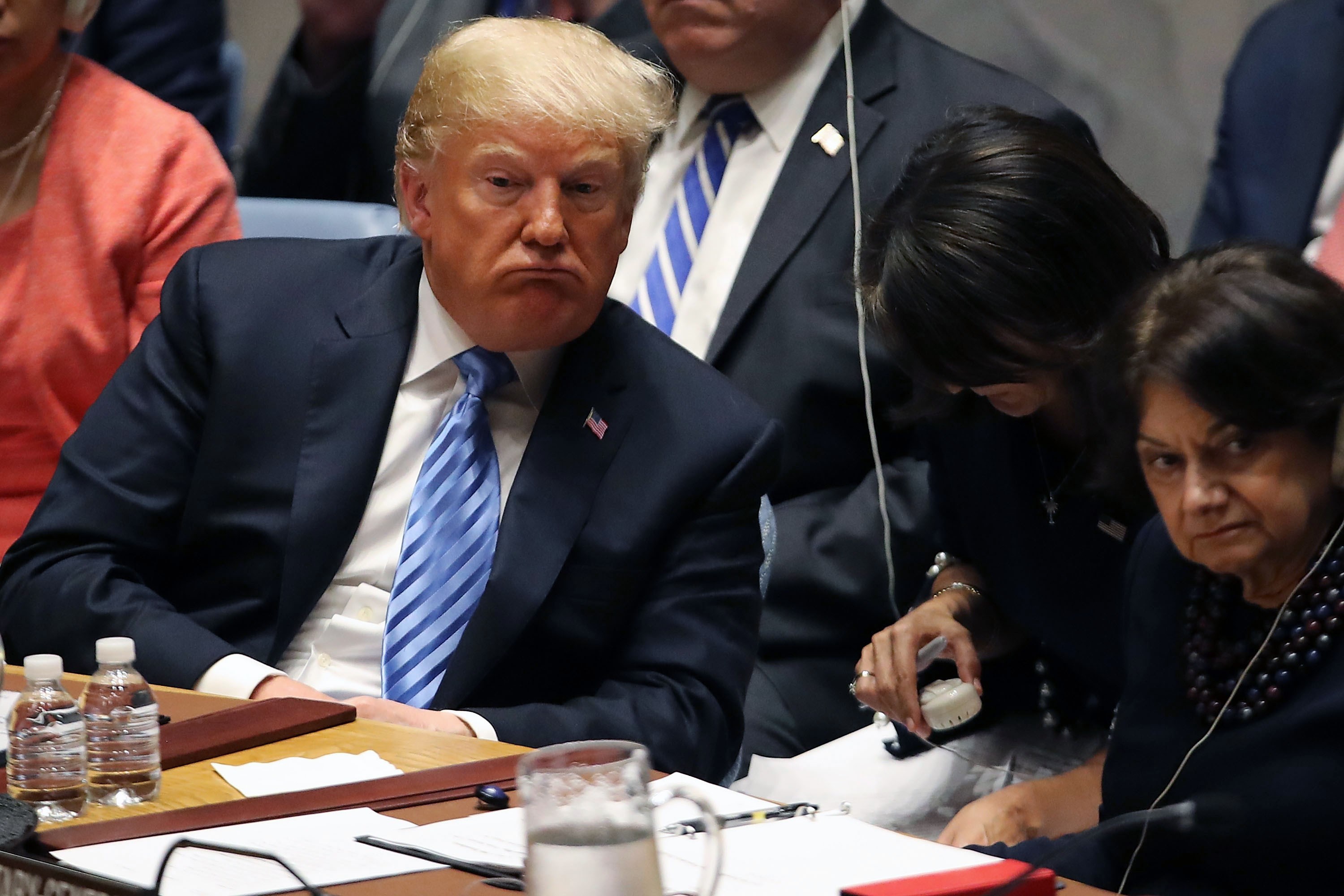
Trump takes anti-Iran campaign to UN Security Council
UNITED NATIONS - US President Donald Trump took his campaign to isolate Iran to the UN Security Council Wednesday, accusing Tehran of spreading chaos at a meeting that laid bare divisions between Washington and key allies.
As chairman of a session of the top UN body, Trump denounced the "horrible, one-sided" nuclear deal with Iran that he ditched in May, to the dismay of European allies.
A gavel-wielding Trump vowed that re-imposed sanctions will be "in full force" and urged world powers to work with the United States to "ensure the Iranian regime changes its behavior and never acquires a nuclear bomb."
The usual practice is for the chair to speak last at council meetings, but in this instance Trump was the first to address the chamber followed by other heads of state.
Addressing the council after Trump, French President Emmanuel Macron hit back, declaring that concerns about Iran cannot be reduced to "a policy of sanctions and containment" that was in place for years before the landmark deal.
"We need to build together a long-term strategy to manage the crisis that cannot be reduced to a policy of sanctions and containment of Iran," said Macron.
The United States has moved to reimpose sanctions that had been lifted under the 2015 deal to curb Iran's nuclear program and has vowed to punish foreign firms that do business with Iran.
On North Korea, Trump called for sanctions to be strictly enforced against Pyongyang -- a message directed at Russia and China which are pushing for an easing of punitive measures to reward North Korean leader Kim Jong Un.
Without naming countries, the US president noted that "some nations are already violating UN sanctions" including illegal ship-to-ship transfers of oil and said compliance was "very, very important."
Trump also accused China of working against his Republican Party in upcoming elections, saying Beijing did "not want me or us to win" because of his hard line on trade.
His toughest words were directed at Iran, however.
"In the years since the deal was signed, Iran's aggression only increased," Trump said.
"The regime used new funds from the deal to support terrorism, build nuclear capable missiles and foment chaos."
Trump assailed Russia and Iran for backing President Bashar al-Assad in his brutal war in Syria, saying: "The Syrian regime's butchery is enabled by Russia and Iran."

US at odds with Europe
Wednesday's meeting highlighted a rift between the United States and its European allies over the Iran nuclear deal.
On Monday, the five remaining parties to the agreement -- Britain, China, France, Germany and Russia -- defiantly announced that they would set up a special payment system to continue trade and business ties with Iran.
Heading into the council meeting, Sweden's Foreign Minister Margot Wallstrom said European Union governments will "stand up" for the nuclear deal and suggested the US approach would fail.
"We have tried sanctions over the years, decades. We tried isolation and it only gave the most conservative forces in Iran more power," she told reporters.
During his address to the General Assembly on Tuesday, Trump assailed Iran's leaders, accusing them of sowing "chaos, death and destruction" and calling on world governments to isolate Tehran.
Iranian President Hassan Rouhani shot back in his speech, denouncing leaders who have "xenophobic tendencies resembling a Nazi disposition" and slamming the planned council meeting as a "preposterous and abnormal act."
Trump's national security advisor John Bolton warned Tehran of "hell to pay" if it threatens the US or its allies.
"If you cross us, our allies, or our partners; if you harm our citizens, if you continue to lie, cheat and deceive; yes, there will indeed be hell to pay," he said, speaking at a gathering hosted by the group United Against a Nuclear Iran, held on the margins of the General Assembly.
"Let my message today be clear: we are watching, and we will come after you."
It was only the third time in UN history that a US president chaired a Security Council meeting. Barack Obama presided over two meetings in 2009 and 2014.
The United States had initially said the meeting chaired by Trump would focus on Iran, but later broadened the agenda under the theme of nuclear non-proliferation and weapons of mass destruction.
Iran has not requested to speak at the council meeting, diplomats confirmed Tuesday although Rouhani will hold a press conference soon after it is due to end.
Leftist leader Evo Morales of Bolivia, a non-permanent council member critical of US foreign policy and a close supporter of Venezuela, launched a blistering critique of US policy toward Iran as well as Trump's immigration policies that resulted in the separation of migrant children from their parents.
Trump sat stone-faced during the remarks before thanking Morales and recognizing the next leader.
After the United States imposed sanctions on Venezuela in May, Morales took aim at Trump, saying he "must understand that the world is not his estate."
Trump is one of around 130 world leaders attending the General Assembly in New York which formally began on Tuesday.
Speakers scheduled to address the second day of the assembly include the leaders of war-torn Yemen and Afghanistan while UK Prime Minister Theresa May will make her last speech at the world's foremost diplomatic stage before Britain leaves the European Union.

